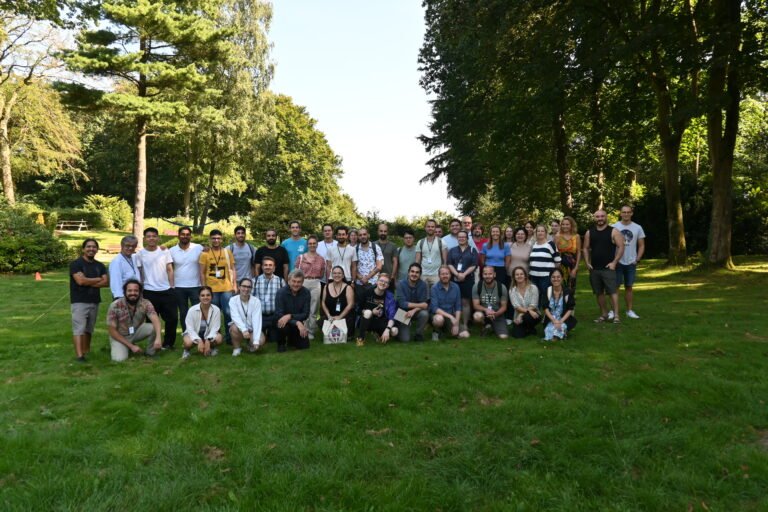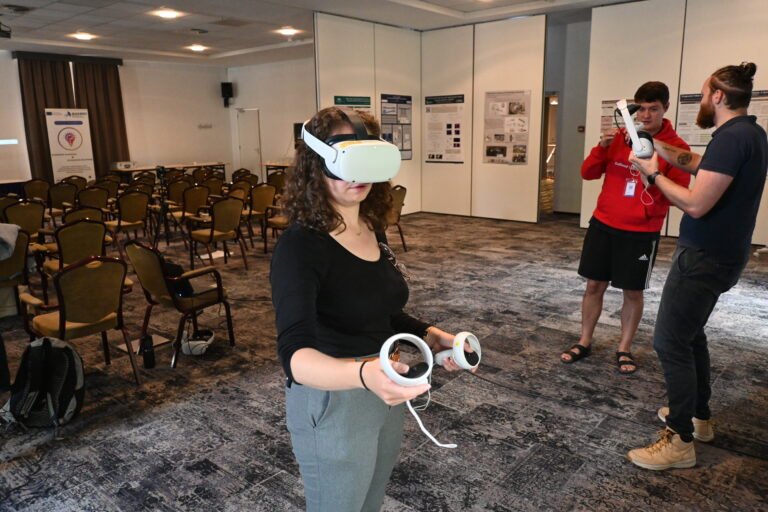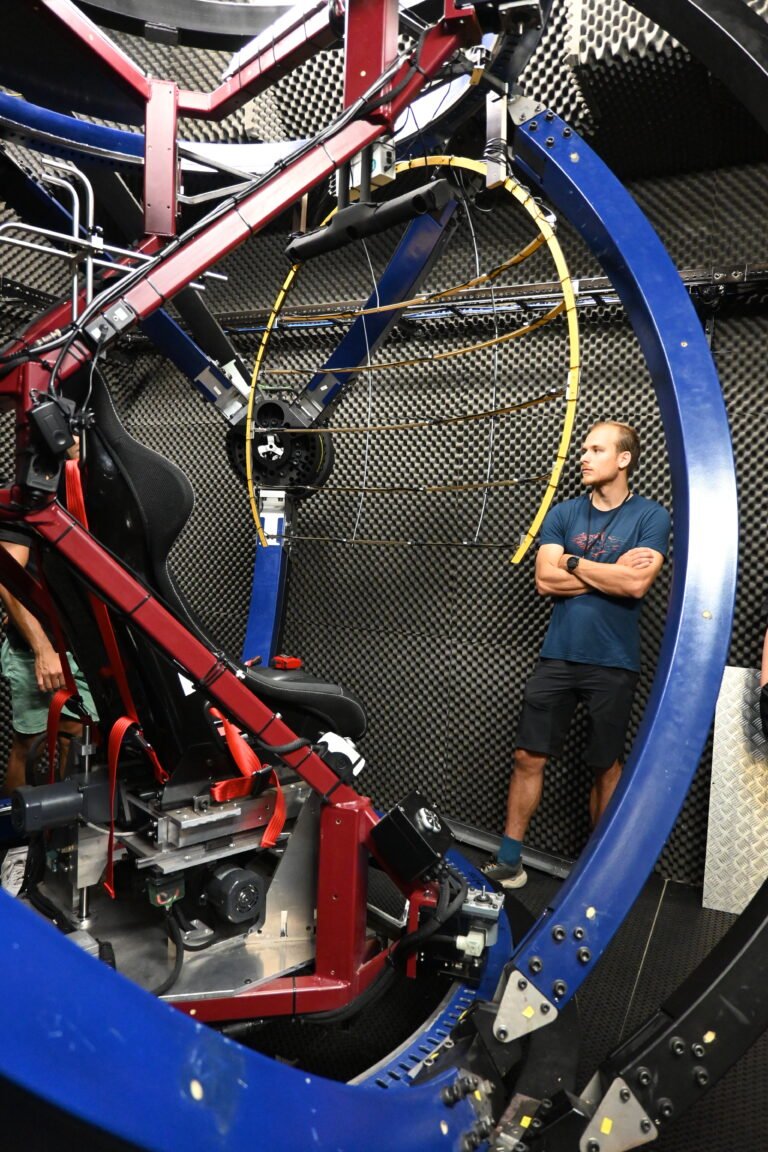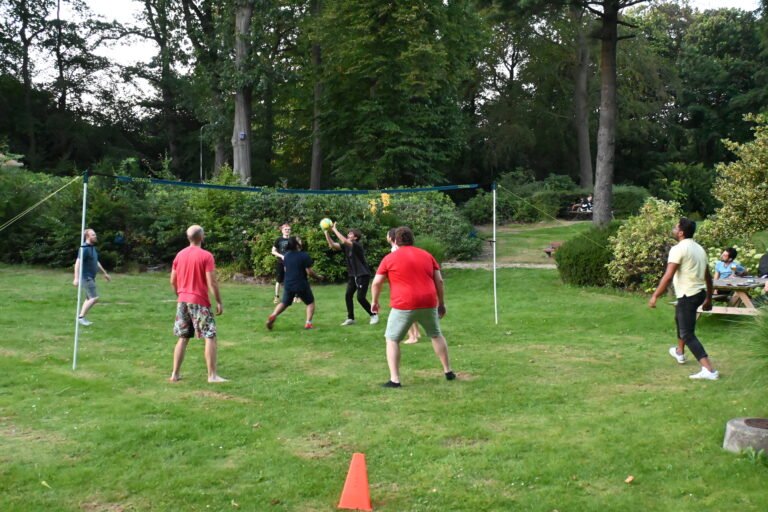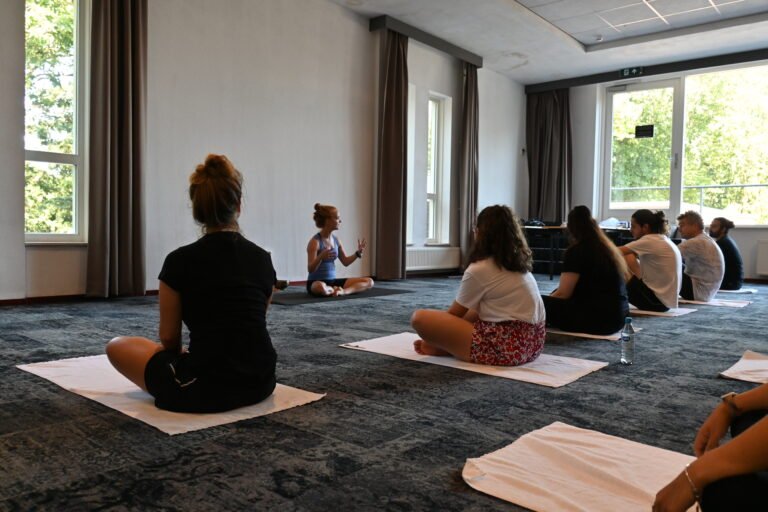The Donders Cognition Brain and Technology Summer School at NeurotechEU partner Radboud University on “Intracranial Physiology and Embodied Awareness” took place from September 4-15, 2023, in Berg en Dal, the Netherlands.
DCBT is positioned at the interface between biology and future emerging technologies, emphasizing the principles underlying brains and their translation to avant-garde technologies. The Summer School introduced the participants to the fundamentals of intracranial physiology and embodied awareness. The program included morning lectures given by outstanding European researchers, followed by interactive, hands-on tutorials and workshops, project work that focused on teamwork, and other interactive activities. The students also had the opportunity to visit the labs at Radboud University and visit the city center.
History
This was the 15th edition of the Cognition Brain and Technology summer school. The location of the school moved from Barcelona in 2022 to the Donders Center of Neuroscience, in Nijmegen, The Netherlands. It was organized by the European coordination action Convergent Science Network of Biomimetics and Neurotechnology, in collaboration with several EU projects. For the 2023 edition, the school received the support of NeurotechEU, the European University Alliance for Brain and Technology.
The summer school has run with great success in previous years thanks to an excellent line-up of outstanding speakers including Nobel Laureate winner Edvard Moser and luminaries in the fields of neurosciences, psychology, biology, robotics, and AI, such as M. Arbib, S. Grilner and G. Rizzolatti, and a host of additional experts.
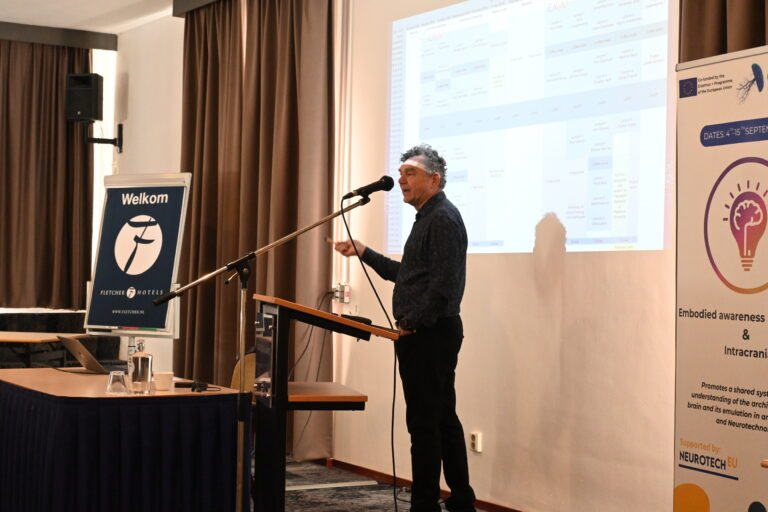
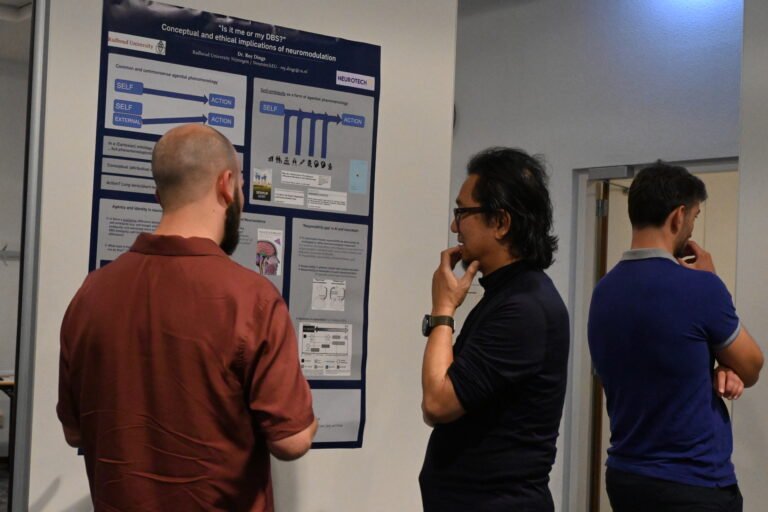
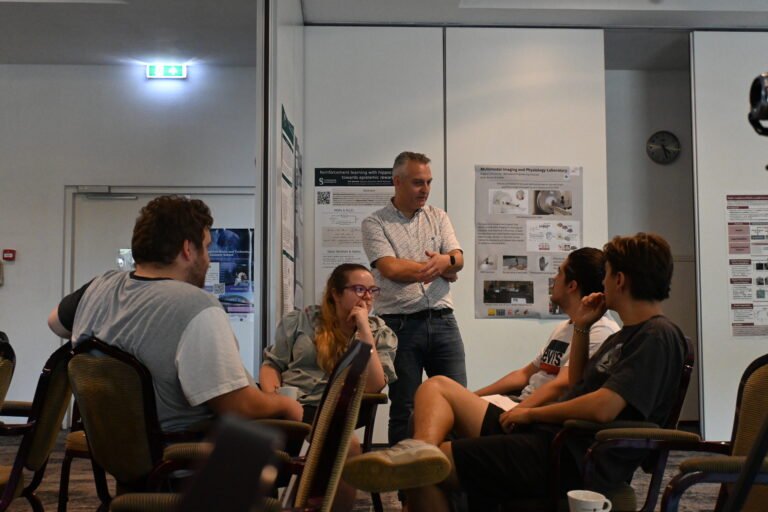
Discovering our Summer school
Students from NeurotechEU partner universities Boğaziçi University, Radboud University, University Miguel Hernández, Iuliu Hațieganu University, and University of Lille participated in the DCBT summer school. NeurotechEU coordinator Prof. Paul Verschure kicked off the summer school with his opening lecture, providing an insightful introduction to our distinguished guest speakers, the inner workings of the program, and sharing a glimpse into his own work. After that, the summer school was off to a good start. The first four days consisted of multiple lectures and tutorials, after which the participants were able to relax during a yoga session.
The lectures included different topics within the main themes of the summer school. Some focused more on the application of technology, while others focused on the application of brain health and disease. For example, Rick Helmich from Donders Institute explained why Parkinson’s patients have more tremor when they are stressed and how the network dynamics changes from the onset to the sustained state.
On Friday the participants had the opportunity to visit some of the labs in the Radboud Science and Donders Institute building, before heading to the MuZIEum. Visiting the human behavior lab gave the students the opportunity to test out the vestibular chair and have a look at the auditory motion and auditory sphere facilities that the lab has to offer. Using these, researchers measure eye-head-orienting responses of subjects to study sound-localization performance, and investigate how the human auditory system tracks a moving sound source in any direction. The students got to experience the strength of the magnetic field, making the experience both interactive and instructive.
Week 2
The second week of the Donders Cognition Brain and Technology summer school was all about the project presentations the students had been working on. If the first week focused on tutorials and workshops, the second one was all about teamwork. Students got the chance to choose their teammates and a project which they presented at the end of the summer school. Some of the project subjects the participants could choose from were, Local-Excitatory Inhibitory Balance in Whole-Brain Models, Measuring Network Dynamics Through Activity Patterns, and other interdisciplinary themes that challenged the groups. The winning project focused on Biofeedback-based audiovisual art generation. The aim of this project is project was to capitalize on closed-loop systems to augment artistic expression by giving a stronger emphasis to a performer’s subconscious activity.
While the first week primarily revolved around tutorials and workshops, the second week provided students with a valuable opportunity to apply their newly acquired skills through a collaborative group project. At the end of the initial week, participants had the chance to select both their project teammates and the theme they wished to pursue. These project themes included diverse and interdisciplinary subjects such as “Local-Excitatory Inhibitory Balance in Whole-Brain Models” and “Measuring Network Dynamics Through Activity Patterns,” offering thought-provoking challenges for the groups to tackle.
To finalize the Donders Cognition Brain and Technology summer school experience, participants showcased their projects, ultimately determining a winner. The winning project, centered around the intriguing concept of “Biofeedback-based audiovisual art generation,” sought to leverage closed-loop systems to enhance artistic expression by emphasizing the performer’s subconscious activity. As one student enthusiastically remarked, “The summer school was incredibly fun; we had the best lecturers and then projects that were extremely enjoyable. I got to work with brilliant people from different domains where I could really see the different perspectives.”
This opportunity not only allowed students to collaborate effectively but also provided an environment for their collective creativity to thrive.
Nijmegen
The DCBT summer school took place in Nijmegen, the oldest city in The Netherlands with a magnificent river landscape, positioned between three large rivers. The city has a lot to offer with historical sites, museums, and the many outdoor cafés that will make your visit worthwhile. The participants enjoyed the live music sessions that took place every Wednesday at Café Het Alternatif, in the city center, and even showed off their talents. With the hotel being located in the beautiful Berg en Dal, some of the participants preferred practicing sports, such as running and volleyball, and even pool parties. While some evenings were all about going out, others were just about socializing while playing pool or watching movies. Overall, participants found the experience to be highly rewarding, not only in terms of learning but also in fostering meaningful connections.
